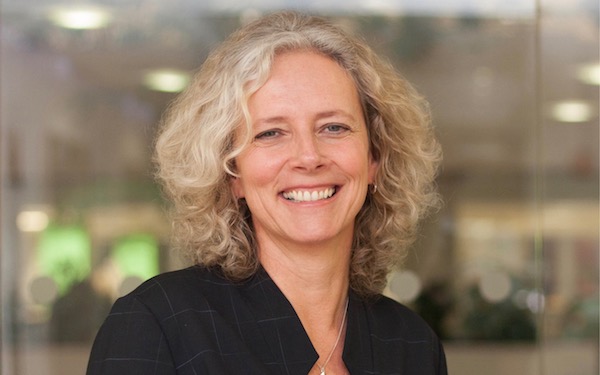
What are some efficient ways to improve the public perception of social work? (Multiple answers)
- Realistic TV and film portrayals of social work. (31%, 648 Votes)
- Less negative news coverage. (28%, 570 Votes)
- Educational government campaigns on the role of social work. (23%, 466 Votes)
- Making social workers more visible (e.g by placing them in schools). (18%, 378 Votes)
Total Voters: 963
A ‘massive reduction’ in the care population, with many more children cared for at home or with extended family, will be the key measure of success for the Department for Education’s (DfE’s) social care reforms.
That was the message from the DfE’s chief social worker for children and families, Isabelle Trowler, in a session today at Social Work Week, the annual online event organised by Social Work England.
Trowler also said that she thought that the general election was unlikely to alter the trajectory of the DfE’s reforms to children’s services, as the needs of children and families, and the problems facing the sector, would not change with the advent of a new government.
Stable Homes, Built on Love strategy
She made the comments alongside DfE colleagues in a session on the department’s reform agenda, Stable Homes, Built on Love, launched last year.
The reforms are designed to significantly enhance early support to families in need, to enable more children to stay at home, while enabling family networks and kinship carers to care for more of those who cannot stay with their parents.
Other goals include significantly improving the quality of child protection practice, enhancing the commissioning of care placements, boosting support to early career social workers and setting rules to limit councils’ use of locum practitioners.
DfE reforms: key points
- Supporting families: creating multidisciplinary family help teams in every area – merged from existing targeted early help and children in need services – to expand support to families and enable more children to stay with them. This is currently being tested through the so-called families first for children pathfinders.
- Family networks and kinship care: involving and supporting extended family, at an early stage, to make decisions about children at potential risk and provide kinship care where children cannot stay at home. This is also being tested through the families first for children pathfinders, as well as the separate family networks pilots.
- Child protection: testing the appointment of specialist lead child protection practitioners as part of expert multi-agency child protection teams, designed to improve the quality of safeguarding practice.
- Children in care: funding councils to expand family finding, befriending and mentoring support for children in care and care leavers to help them find and maintain relationships.
- Commissioning care placements: setting up regional care co-operatives to take over individual councils’ responsibilities for commissioning and providing care, in order to improve forecasting of need, placement planning and the quality of commissioning, and, consequently, tackle the current insufficiency of provision.
- Early career framework for social workers: replacing the assessed and supported year in employment with a two-year induction and support programme for newly qualified social workers in children’s services, followed by three further years of career development to enable staff to become expert practitioners in specialist areas.
- National standards and outcomes: establishing a national framework setting key standards and outcomes for children’s social care.
In the Social Work Week session’s question and answer section, a delegate asked what would show that the DfE’s reforms had been a success in 10 years time.
‘Massive reduction’ in care population is key objective
Trowler replied: “We [will] have a massive reduction in the number of looked-after children and children are living happily and safely with their birth parents and extended families and those families are well supported and the workforce is truly multidisciplinary, with truly expert knowledge and skill, and the child protection part of the system is razor sharp in identifying significant harm and acting upon it quickly.”
The care population in England rose for the 15th consecutive year in the 12 months to March 2023, to 83,840.
The Independent Review of Children’s Social Care, on which much of the DfE’s reform agenda is based, predicted the care population would reach almost 100,000 by 2032, on current trends.
In its final report, the review, led by Josh MacAlister, predicted that full implementation of its measures, backed by £2.6bn over four years, would reduce the care population to about 70,000 by 2032.
However, the DfE has only committed £200m over two years so far while it tests its proposed reforms.
‘Reforms’ direction of travel will continue’ post-election – Trowler
Another delegate to the Social Work Week session asked what the impact of the general election, due by January next year, would be on the reform agenda.
“The children’s social care system won’t change, regardless of the outcome of any general election,” said Trowler. “The needs of the families have been pretty consistent over the 30 years I’ve been in the sector.
“And the problems we’ve got with things like placement sufficiency, that’s not going to change either. In general, the direction of travel is going to continue. Everyone involved in the sector wants to do the right thing by children and families.”
The Labour Party is strongly tipped by pollsters to form the next government and it is unclear what its election manifesto will pledge in relation to children’s social care.
Giving the party’s initial response to Stable Homes, Built on Love last year, shadow children’s minister Helen Hayes said it was “not the radical reset that the [MacAlister] review demanded and that we need”.
Specifically, she criticised the plan for lacking a “vision for the direction of children’s social care”, a workforce plan and action to tackle “profiteering” in the provision of care placements.




 Bournemouth, Christchurch and Poole
Bournemouth, Christchurch and Poole  Hampshire County Council
Hampshire County Council  Lincolnshire County Council
Lincolnshire County Council  Norfolk County Council
Norfolk County Council  Northamptonshire Children’s Trust
Northamptonshire Children’s Trust  South Gloucestershire Council
South Gloucestershire Council  Wiltshire Council
Wiltshire Council  Wokingham Borough Council
Wokingham Borough Council  Children and young people with SEND are ‘valued and prioritised’ in Wiltshire, find inspectors
Children and young people with SEND are ‘valued and prioritised’ in Wiltshire, find inspectors  How specialist refugee teams benefit young people and social workers
How specialist refugee teams benefit young people and social workers  Podcast: returning to social work after becoming a first-time parent
Podcast: returning to social work after becoming a first-time parent  Podcast: would you work for an inadequate-rated service?
Podcast: would you work for an inadequate-rated service?  Family help: one local authority’s experience of the model
Family help: one local authority’s experience of the model  Workforce Insights – showcasing a selection of the sector’s top recruiters
Workforce Insights – showcasing a selection of the sector’s top recruiters 

 Facebook
Facebook X
X LinkedIn
LinkedIn Instagram
Instagram
An adherence to the Nolan principles of objectivity, accountability, openness, honesty and leadership by the professionals involved with families and children is the place to start. The mental health of the children involved with children’s services should be the top priority sadly it seems that corporate coverup takes precedence..
I do not see a mention of children in care being linked with weekend befriended.
Too many social workers have far too many cases.This should be a priority to prevent the recent child tragedies.
As an ex teacher I was frustrated by the difficulty of liaising with social workers when I was concerned about children.
During all my career in several schools and three areas ,I do not recollect any connection with any social workers
Sincerely,Mrs J Chadwick
Can someone provide a list of what the Chief SW has done for SW because I’m scratching me head?